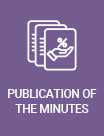Monetary Policy and Portfolio Flows in an Emerging Market Economy
The series Borradores de Economía (Working Papers on Economics) contributes to the dissemination and promotion of the work by researchers from the institution. On multiple occasions, these works have been the result of collaborative work with individuals from other national or international institutions. This series is indexed at Research Papers in Economics (RePEc). The opinions contained in this document are the sole responsibility of the author and do not commit Banco de la República or its Board of Directors.
Abstract
Portfolio flows are an important source of funding for both private and public agents in emerging market economies. In this paper, we study the influence of changes in domestic and US monetary policy rates on portfolio inflows in an emerging market economy and discriminate among fixed income instruments (government securities and corporate bonds) and variable income instruments (stocks). We employ monthly data on portfolio inflows of non-residents in Colombia during the period 2011-2020 and identify the monetary policy shocks using a SVAR model with long-run restrictions. We find a positive and statistically significant response of portfolio inflows in government securities and corporate bonds to changes in both domestic and US monetary policy rates. Portfolio inflows in the stock market react more to changes in the inflation rate and do not react to changes in monetary policy rates. Our findings are consistent with the predictions of the interest rate channel and remark the predominant role of inflation in driving portfolio inflows. The results suggest that domestic and US monetary policy actions have an important effect on the behavior of portfolio inflows in emerging economies.














.png)

































